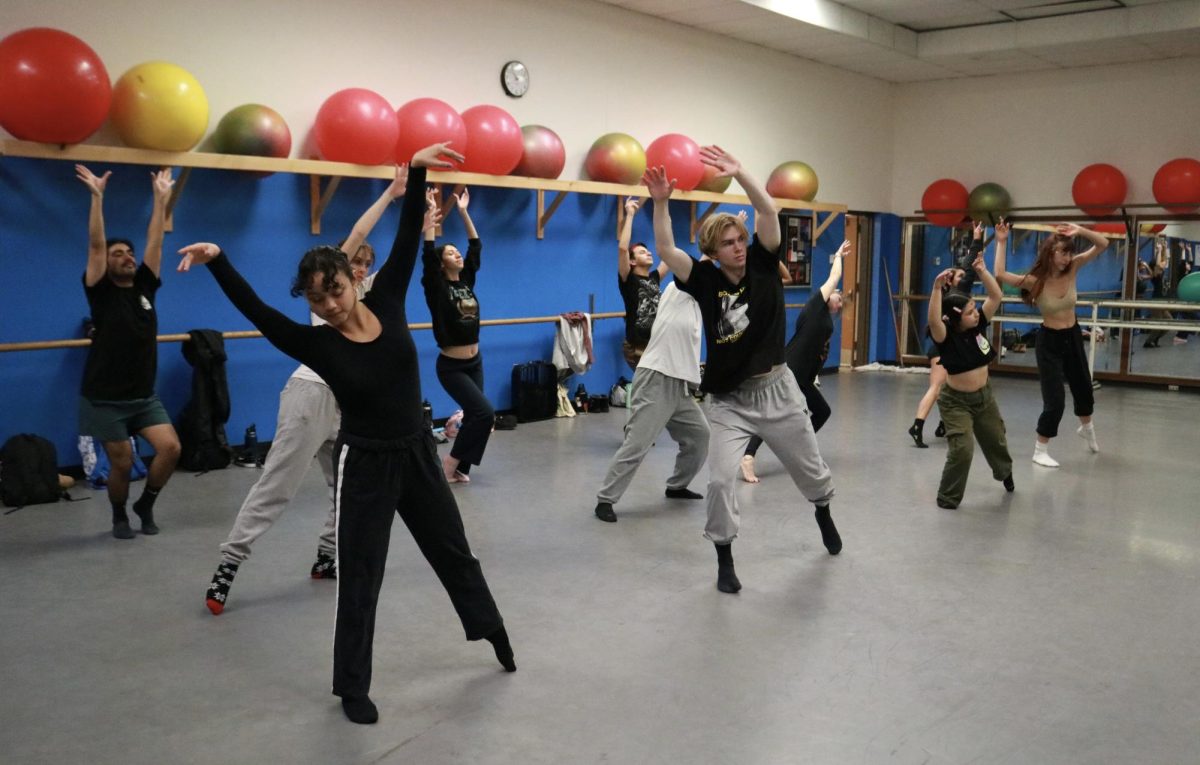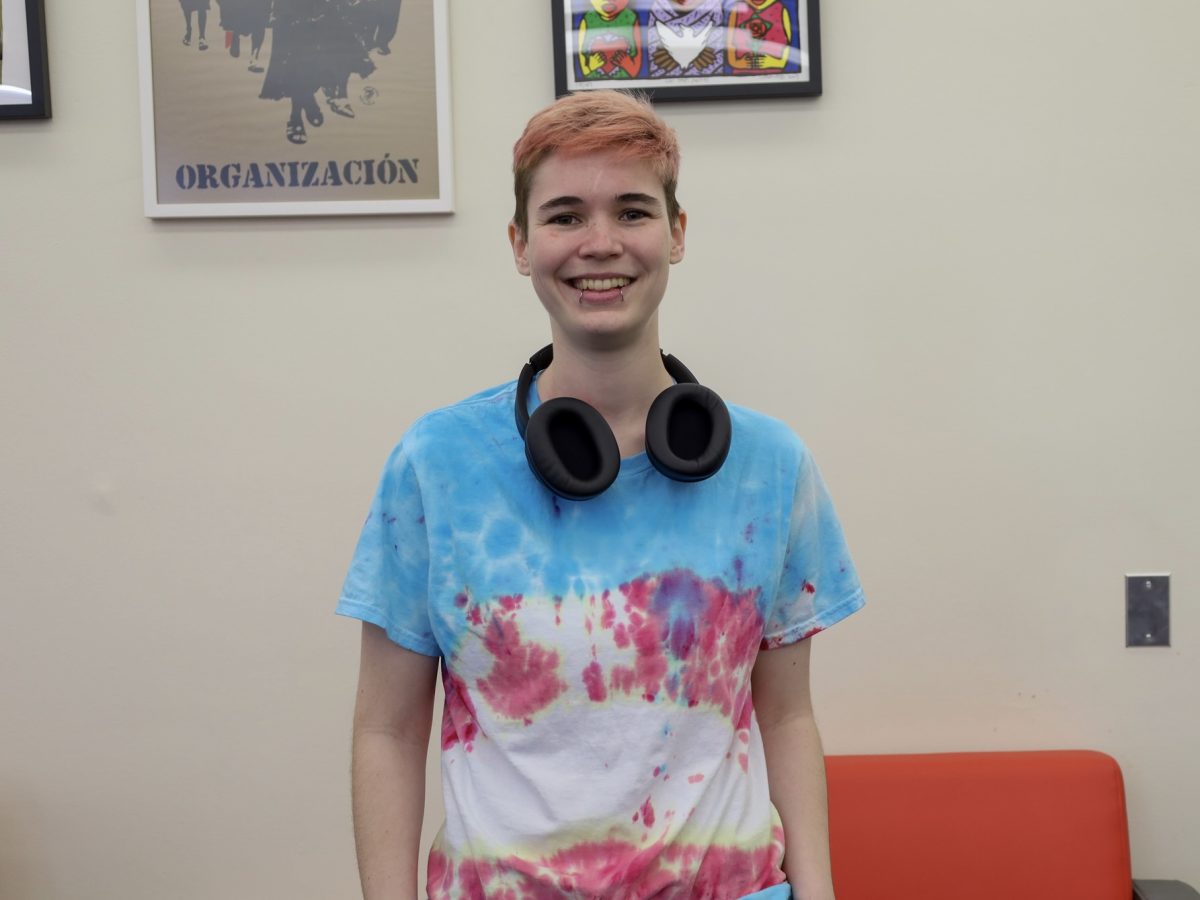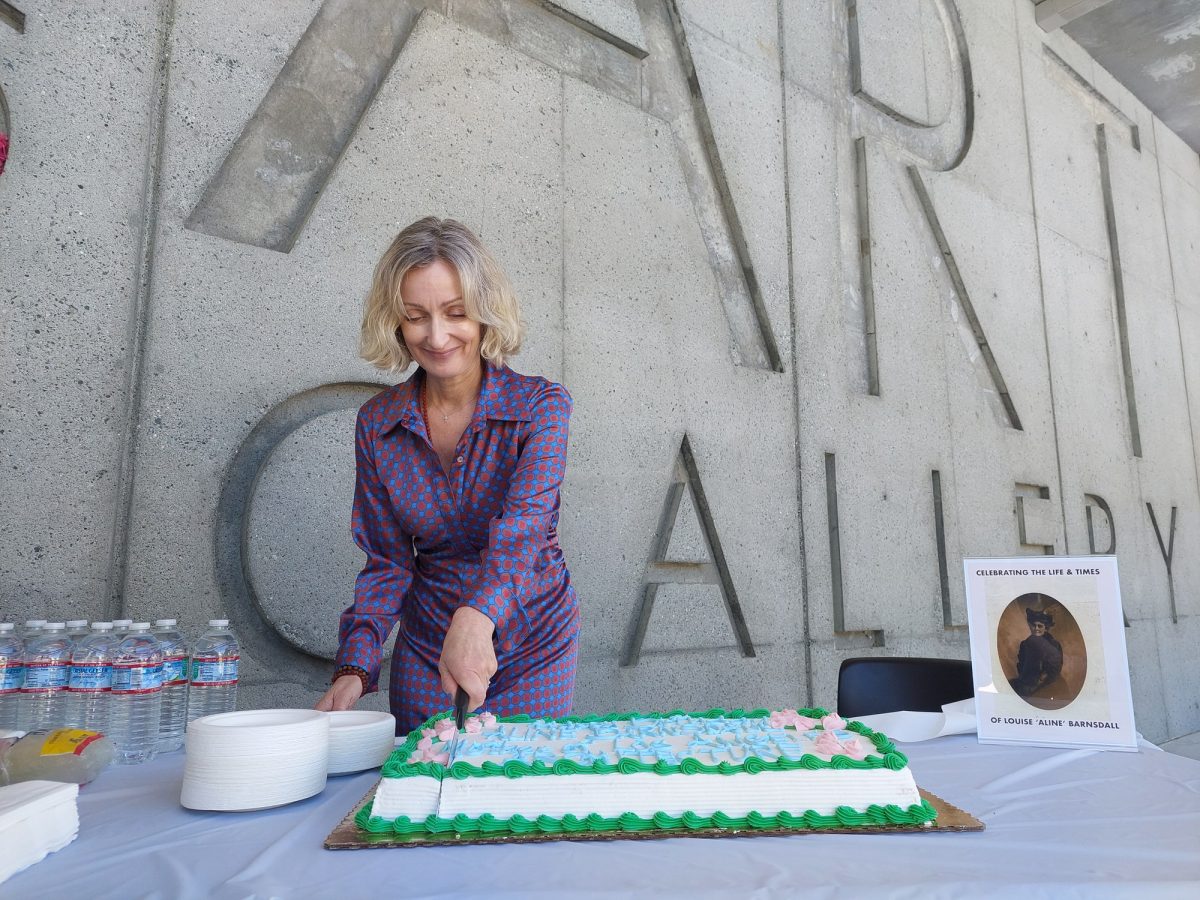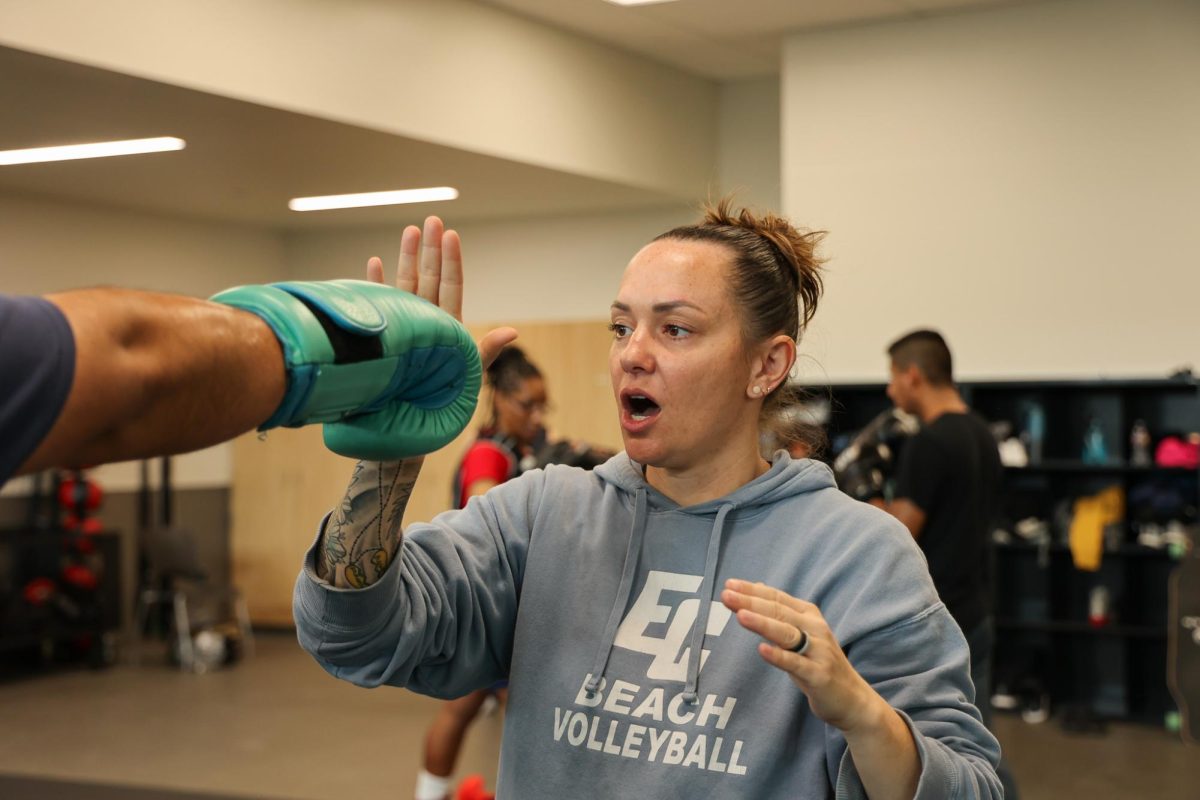Walking through the campus you can hear the sounds of a radio playing somewhere in the distance, but you just can’t figure out where it’s coming from. If you enter the Activities Center, in the far corner , you can hear the music as it gets louder and then the sound of someone saying, “Stay tuned, you’re listening to KECC 1500 AM.”
The voice of EC, as it is called, is the radio station heard on campus throughout the week from 8 a.m. to 8 p.m. The radio station is a club on campus and it’s a service that provides students with the outlet to share their interests in music and to help give some experience to the students who are seeking a career in broadcasting.
Free speech on the airwaves
Disc jockey Brandon Charles, computer arts major, who is also known as The Kat N the Hat, does a radio show called The Unknown Zone, that began as a part of the radio station last year during club rush week. The show is named The Unknown Zone because the listener doesn’t know what type of music will be played and neither does the DJ.
“The radio station had no sign; just two people sitting there. They said the wrong things to me, like I can say anything I want and play whatever I want, and got me interested in being on the radio,” Charles said. “I say wrong because there are certain things you don’t want me to talk about and I will talk about anything, given the freedom to.”
The radio station began in April 1994, where it started as an expirement and only lasted about four hours. It fully became a radio station in November of that same year. The DJ’s are allowed to play any type of music they choose to play and they are given their First Amendment rights to freedom of speech to play any type of music that they want and say whatever they want to say during their time on the air.
“We don’t set formats; it’s whatever the DJ wants to play. It’s up to them,” Charles said.
The DJ’s are responsible for bringing their own music to play on their shows and for choosing what they want to hear on the radio. They also have a request line that allows students to call in and request a song that they want to hear.
“The only problem with the request line is sometimes the DJ’s will not be able to play a song because they don’t have it or don’t play that type of music on their show,” Charles said.
Awareness about KECC 1500-AM
Many students don’t even know that there is a campus radio station at EC, like Elizabeth Steffen, early childhood education major.
“I never knew that we had a station here at EC,” Steffen said, although she is happy that there is one.
“I think that it is a good idea to have one to inform students of the things that are happening around campus and also play music that students can enjoy.” she said.
KECC 1500 AM can only be heard on campus and ranges about 200 feet. So people in the art building, Counseling Office, the main gym and people in the Schauerman library may pick up the station on their radio to hear the DJs play. Or they can listen to them while in the activities center during the day.
“I wish that the station played at a larger range in the South Bay, so that I would be able to get the station at home,” Steffen said.
DJ Karen Braun, computer arts major, said that since EC would need to have a different Federal Communications Commission (FCC) license to be able to broadcast around the South Bay, instead of just the campus.
“By broadcasting around the South Bay, students would be able to hear about things that are happening when they are not on campus that may be important for them to know,” Steffen said.
The controversy with DMCA
One thing that many college radio stations face today is a problem with the Digital Millennium Copyright Act, or DMCA, which if enforced, will cause stations to not be able to afford to webcast their music. The act states that radio stations are supposed to pay thousands of dollars toward annual fees to broadcast streaming audio over the web.
Many record companies don’t like the idea of webcasting, while college radio stations like EC’s are very well fit for webcast. Although this law has not been enforced yet, when it is, college radio on the web will be in for a lot of trouble.
“Our annual dues that we pay for the station is only five dollars for the whole year for us to learn how to use the equipment and for us to have some air time,” Charles said. “Which is something that is helpful to college students who don’t have that much money all the time.”
KECC has freedom
KECC is a club that enables student s to have a voice in what they want to listen to and what they want to say to their fellow students. KECC exercises First Amendment rights to students. It allows them to speak their mind and show people what they got. It also serves as a place where students who are interested in the field of broadcasting are able to gain learning experience in that field, according to members
“To have a college radio station that is run by the students is something that is definitely good for someone who wants to be in that profession,” Steffen said. “Because it can be used as their learning tool and for some really good experience in the area from it.






